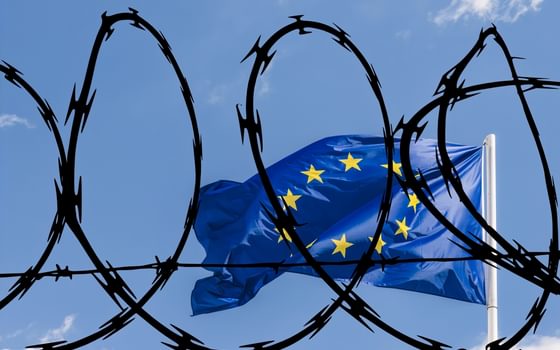Threat to democracy
The impact of ‘better regulation’ in the UK
12 October 2015
Better regulation is a little-known but powerful initiative that affects us all: our safety, our environment, our health, our rights at work and our democracy.
The term sounds innocuous, but in fact it has little to do with the quality of policy-making. The story of ‘better regulation’ is, first and foremost, a story of corporate capture.
In the name of ‘better regulation’, a large and unaccountable bureaucracy has been created with the express purpose of making it more difficult for government departments to pass laws which impose costs on businesses. This includes:
- One in, two out: a rule that prevents government departments from implementing new laws that impose £1 of cost to business unless they also repeal £2 from elsewhere, regardless of social or environmental benefits.
- The Regulatory Policy Committee: a panel composed mainly of business representatives that ‘validates’ departments’ estimates of the costs of new regulation, providing official opinions with the power to delay the introduction of new rules.
- Impact assessments: the requirement for civil service economists to complete a detailed appraisal of proposed policy changes and, where possible, express all impacts in terms of monetary values.
- The Red Tape Challenge: a crowd-sourcing initiative in which the government invites the public to propose existing laws that should be scrapped.
The combined effect has been profound. Important social protections have been watered down, such as workers’ protection from unfair dismissal and speed limits for heavy goods vehicles (HGVs). Perhaps more significantly, the space for new initiatives has been dramatically curtailed, both by creating a deliberate chilling effect in the civil service and by delaying or blocking proposals that do surface.
All of this is justified by a narrative that incorrectly equates regulation with unnecessary red tape, and tells us that scrapping this pointless bureaucracy will be good for business, good for the economy, and good for us all. But this is deeply misleading.
At its heart, ‘better regulation’ is not about form-filling: it is about reducing all costs of regulation to the regulated. Almost any regulation worth having will carry such costs: for example, the minimum wage imposes costs on businesses by preventing unscrupulous employers from exploiting their workers through poverty pay.

Credit: UK Parliament
The purpose of most regulation is to curtail private interests when they do not coincide with the public interest. ‘better regulation’ fundamentally undermines this purpose.
In this report, we show how:
- ‘Better regulation’ is bad for the economy. The UK is already one of the least regulated economies in the developed world, and there is little evidence that regulation hurts the economy: on the contrary, good regulation (for example, high environmental standards) can drive innovation and create new markets. Many enlightened businesses recognise that regulation is essential to tackle economic threats such as climate change. Protecting the profits of the regulated is not the same thing as protecting our economy.
- ‘Better regulation’ is bad for society and the environment. By reorienting the policy machine around the goal of driving down costs to business, it explicitly prioritises the interests of business – and the most short-term, socially irresponsible businesses at that – over those of workers, consumers and the environment.
- ‘Better regulation’ is bad for our democracy. With little or no scrutiny or democratic debate, the policy-making process has been brought under an unprecedented level of control by private economic interests. Debates about lobbying transparency have little meaning when corporations are simultaneously being invited to write their own rules.
‘Better regulation’ has passed under the radar for far too long. It is time for civil society to hold it to account. We recommend that:
- The arbitrary and illogical ‘one in, two out’ rule should be immediately scrapped.
- The Regulatory Policy Committee’s remit and membership should be given a radical overhaul.
- Government should prioritise the development of new forms of policy appraisal which correct the flaws and biases inherent in the impact assessment process.
Finally, we note that UK businesses and policy-makers have been instrumental in replicating this privatisation of policy-making at the EU level. But it is not too late for Europe to avoid repeating the UK’s worst mistakes. We hope that this report will act as a warning against following the UK example.
Topics Democracy & participation






